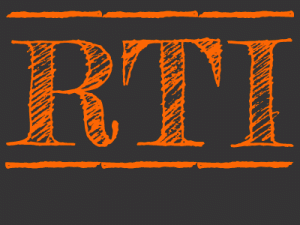This blog post has been written by Surbhi Kapoor, a first-year student of Amity Law School, Delhi. The article talks about the most important tool in the hands of the citizens of our country, the tool of RTI which was implemented to provide information about the governmental organizations to the citizens of the country however due to some drawbacks and lack of proper implementation. The article elaborates on those drawbacks and some reforms to improve the act.
Introduction
Right to Information Act, 2005 is a masterpiece of law and an important feature of democracy which provides the citizens of the country with a tool to question and to get information about the working of the government and its various organs. It tries to uphold the transparency and accountability of the working of the government and the public authorities. Every citizen of the country has the right to get access to the information regarding the money spent by the government on various projects as it is through the taxes paid by the citizens. Citizens have the right to seek information about representatives for whom they vote, the records of the government authorities and the tool of RTI reinforces the same right to the citizens.
Under this Act, all the public authorities should have their records in a computerized form. Any person can seek information from a public authority, and a reply should be received from them within 30 days.
What is Exempted?
In the Act, Section 8(1) lists all the exemptions that do not get included under public authority which includes:
National security and sovereignty: National security information such as some fighter planes, soldiers are of utmost importance to a country, and if leaked, it can create a threat to the integrity. However, this privilege should only be used for some integral purposes and not to protect minor information. Common commercial information such as the salary paid or planes bought should not be kept a secret only because it is not related to the defense of the country. 
Forbidden to be published by the court: If there is any information regarding any case or even otherwise that has been strictly forbidden by the court to be published anywhere, the same cannot be asked using the tool of RTI. There are various instances where the court does not allow the names of the parties to a particular case be made known to the public, so no person under RTI can ask for the disclosure of the names.
Privilege of Parliament: Article 105 of the Constitutions protects the freedom of speech to the parliamentarian. No person shall be held liable for anything said and done in the parliament to the court. They also have the privilege of restricting the publishable material of the parliament proceeding. So if some Act in the parliament has not been published or made known to the public, no person can ask for the same to be done using RTI.
National Economic Interest: Disclosing integral information which is related to the economy of the country cannot be asked via RTI before maturity time as it may lead to an imbalanced development and economic growth. The budget, exchange rates, tax rate pending changes cannot be asked via the RTI to protect the economy of the country.
Loopholes
The RTI Act only covers the government entities, and the private enterprises do not come under the RTI Act. Owing to this many municipal corporations, state and central Government entities are opting for the public-private partnership as it would no longer be covered under the Act. The Pune Municipal Corporation had decided to start all the new infrastructural projects under PPP scheme. So, this body will not be accountable or answerable under the Act.
There is a lot of ambiguity regarding what is covered under the public authority in Section 2 of The Act. Only those entities that are funded by the government should have been included but through various judgments on the same in the past, the position has completely changed. Temples that appear to be private as they are funded by trusts are now included under the RTI Act. So there are many other organizations that are ambiguous whether they fall under the Act or not.
Expensive Tool
RTI though useful comes at a huge cost to the people. To file an application to seek information, a person has to pay Rs. 2 with the application. Then they have to pay Rs. 10 to get every letter stamped by the court. Then to seek the information they additionally have to pay the concerned department some amount depending upon the number of pages they have asked for. Further, if they do not receive the information they asked for, or it is inadequate, they have appeal further.
If not satisfied, there is an option to file a case in the court for which separate fees shall be charged. So this information turns out to be an expensive affair to the common man.
Misuse of Information
The information under RTI Act can be sought by any person irrespective of the background, address, and particulars the person as there is no provision to check the identity of the person. This can prove to be a threat to the country as the information can also be misused by any external association. There have been various instances in the past where the information sought under RTI Act has been misused by people for blackmailing others. There have also been many instances where the same information has been sought multiple times that lead to the increase in cost and increasing the workload of the office as well.
Third Party’s Advantage
Section 11 of the Act states that if there is any information which is related to a third person, then the consent of the person needs to be taken before disclosing the information. In most of the cases, the person refuses to share the asked information because it is an encroachment on their privacy. The Public Information Commissioner has no choice but to abide by that even if the excuse given may not be relevant for the information asked. There should have been a provision where the Public information officer has an option to check if the information sought comes under the exemption or not.
No Transparency
There is no transparency if the information provided by the party is correct or not. Even when the party refuses to provide any information the party even when they have full documents related to the material asked. The only resort would be to appeal further to receive the information. This process is very time-consuming and leads to fewer people using his effective tool.
Reforms Needed
When the RTI Act was to be implemented, it was pleaded that this move would prove to be effective in fighting against corruption. Every information regarding development funds, projects undertaken and money spent, the time required to execute the project should be available to the citizens. People file various RTIs but hardly receive any replies from the organizations. The RTI department only transfers the pleas of the people to the various concerned department, but these departments fail to take any effective step on to provide the relevant information to the concerned people. The Union Government, on the recommendation of the 2nd Administrative Reform Commission, had advised state governments to earmark 1% of the funds meant to implement major welfare schemes towards necessary reforms such as digitization of records and buying necessary infrastructure to provide information over a period of five year1.
The public authority at the district and village level do not have enough infrastructure and information about the welfare schemes implemented in the district. The urban however have resources to access the information like the internet, newspaper and provide the same but the due to some corrupt people there is a gap between the departments.
RTI is a landmark Act passed by the parliament to benefit the citizens of the country and to provide information even from the grass root level. This Act provides a means to the citizens, but the transparency and accountability still lack in the country. The weakness of this Act is because of the weak implementation because the implementing organizations fail to look at the practical aspect of the Act.
[divider]
Footnote:
 Serato DJ Crack 2025Serato DJ PRO Crack
Serato DJ Crack 2025Serato DJ PRO Crack











 Allow notifications
Allow notifications


